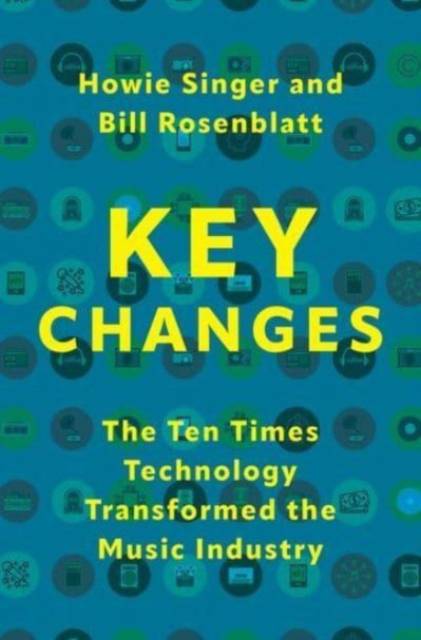
- Afhalen na 1 uur in een winkel met voorraad
- Gratis thuislevering in België vanaf € 30
- Ruim aanbod met 7 miljoen producten
- Afhalen na 1 uur in een winkel met voorraad
- Gratis thuislevering in België vanaf € 30
- Ruim aanbod met 7 miljoen producten
Zoeken
Key Changes
The Ten Times Technology Transformed the Music Industry
Howie Singer, Bill Rosenblatt
Hardcover | Engels
€ 113,45
+ 226 punten
Omschrijving
Tells a new story about the history of the music business and the ten technological advances that disrupted it over the last century. In recent years, narratives about the music industry tend to hew to a common theme: it was humming along for decades until the Internet and Napster came along and disrupted it. Key Changes shows that this view is incorrect: the industry was actually shaken up not once in the 1990s, but ten times over more than 100 years. These ten disruptions came with the introduction of new formats for enjoying recorded music: starting with the cylinders and discs played on early phonographs; then moving through radio, LPs, tapes, CDs, television, digital downloads, streaming, and streaming video; and then into Artificial Intelligence (AI), which enables a wide range of new capabilities with profound impacts upon the business. This book devotes a chapter to each of these formats, illustrating how such innovations beget shifts in creativity, consumer behavior, economics, and law. Each of the technological innovations covered in this book not only disrupted the music business, but also fundamentally altered the industry's character. And while the technologies themselves have evolved in unique and varied ways over the decades, the changes within the business follow a clear pattern. Veteran music industry professionals and music technology experts Howie Singer and Bill Rosenblatt illuminate this pattern through a framework they term "the 6 Cs" cutting edge technology, channels of distribution, creators, consumers, cash, copyright. This framework provides insight into how such disparate innovations similarly disrupted and transformed the music business in each era. Extensively researched and supplemented by interviews with Grammy-winning artists, producers and executives, the book provides an insightful perspective on the ways technology has fundamentally altered the music industry, throughout history and into the present era.
Specificaties
Betrokkenen
- Auteur(s):
- Uitgeverij:
Inhoud
- Aantal bladzijden:
- 496
- Taal:
- Engels
Eigenschappen
- Productcode (EAN):
- 9780197656891
- Verschijningsdatum:
- 18/09/2023
- Uitvoering:
- Hardcover
- Formaat:
- Genaaid
- Afmetingen:
- 235 mm x 156 mm
- Gewicht:
- 830 g

Alleen bij Standaard Boekhandel
+ 226 punten op je klantenkaart van Standaard Boekhandel
Beoordelingen
We publiceren alleen reviews die voldoen aan de voorwaarden voor reviews. Bekijk onze voorwaarden voor reviews.











